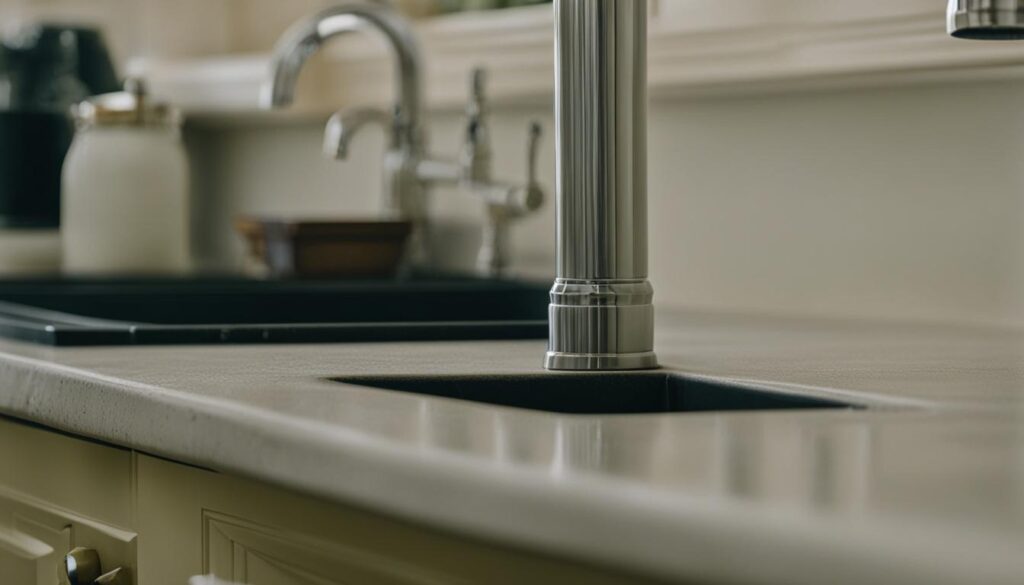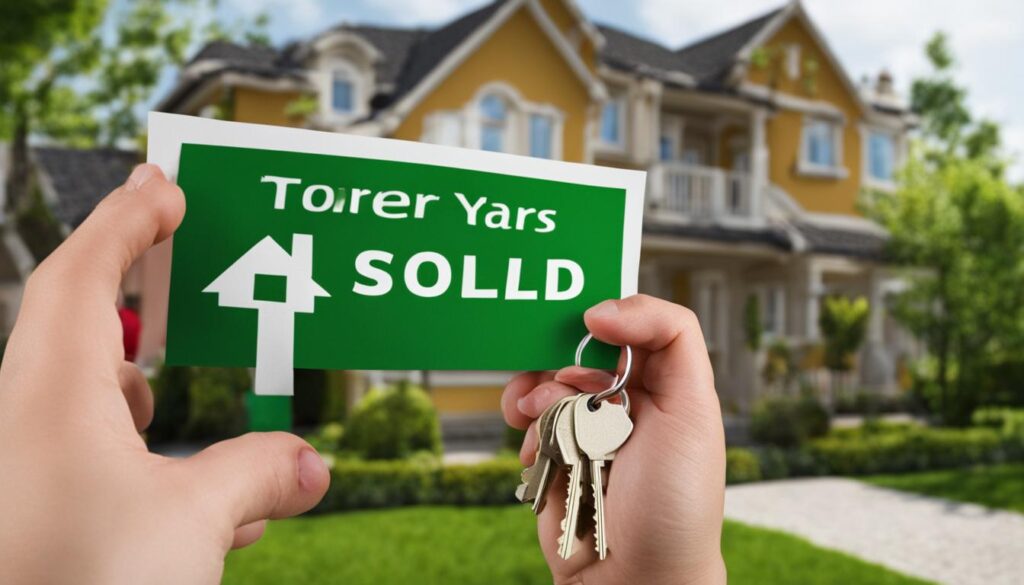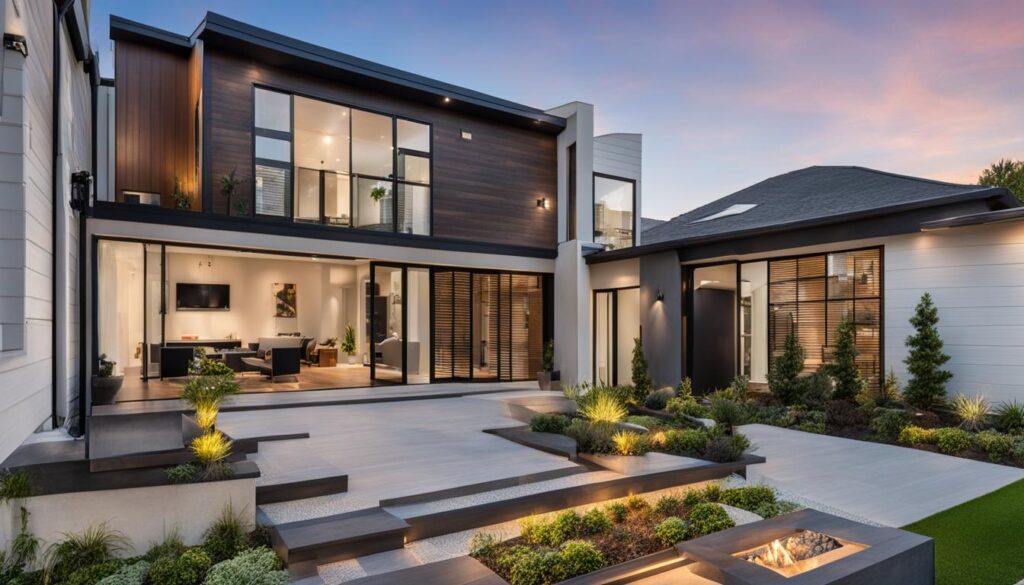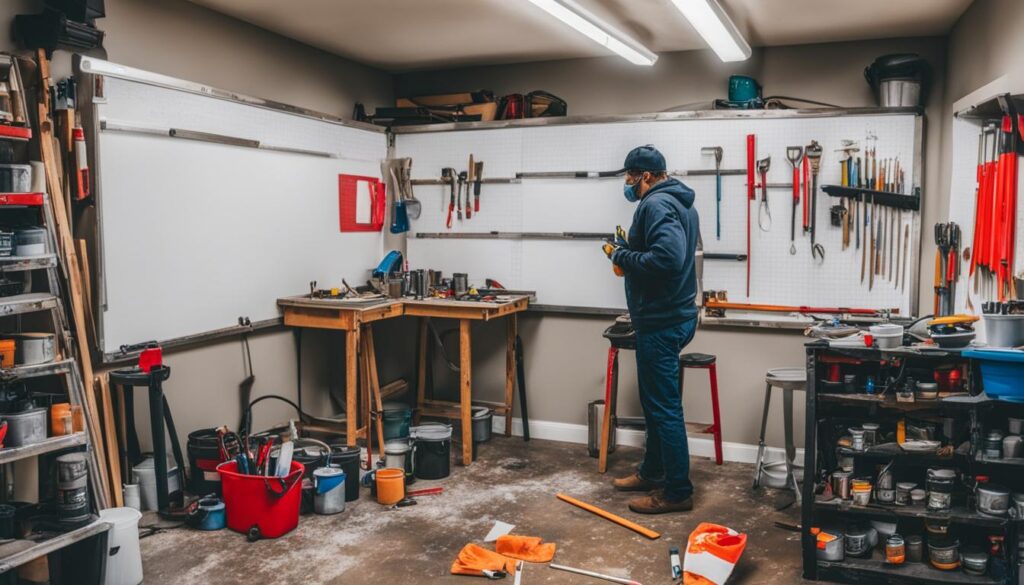Estimated reading time: 18 minutes
Introduction
When selecting options for new construction homes, it’s smart to approach builder-offered upgrades with caution to avoid unnecessary costs and future regrets. The temptation to customize every detail of your home through the design center can be enticing, but understanding which builder upgrades are essential and which are not is crucial. The focus here is on new home upgrades to avoid, a vital consideration for those venturing into purchasing a new construction home. While the allure of top-tier kitchen cabinets, premium floor options, or the latest appliance models offered by the builder is understandable, identifying which upgrades offer real value and which could be more economically achieved after moving in is key to making smart choices.
Specifically, construction upgrades like enhanced cabinets, flooring decisions, fixture choices, and faucet selections can greatly influence both the look and functionality of your home. Yet, evaluating the cost versus benefits of these builder upgrades is essential. For instance, luxury kitchen cabinets and tile work, while appealing, might not justify the high costs when considering the builder‘s markup. Likewise, while light fixtures, molding, and backsplash options can significantly change a room’s appearance, the added cost when choosing these through the builder might make them suitable projects for later remodeling. Being informed about new construction upgrades and discerning which design center choices to prioritize enables homebuyers to use their budgets effectively, focusing on upgrades that genuinely enhance their new construction home.
Key Takeaways
- Avoid overestimating your DIY skills and taking on too much work.
- Don’t overlook the community and consider factors like proximity to amenities and future developments.
- Remember to budget for ongoing maintenance costs.
- Get a preapproval before house hunting to determine your maximum purchase price.
- Explore multiple properties to find the best fit for your needs and preferences.
Review Your Budget Before Buying a Home
Before you decide to purchase a house, especially when considering a new construction from a home builder, evaluating your budget is essential for determining which upgrades can significantly increase your home’s appeal and functionality. While many new construction upgrades you want might seem attractive, focusing on those that genuinely add value is crucial. For example, choosing cabinet upgrades from big box stores like Home Depot, rather than those offered by the builder, can be a cost-effective way to enhance your space. It’s recommended to stick with the standard cabinet hardware and invest in areas that offer substantial returns, such as countertops, plumbing fixtures, and a kitchen backsplash. Engaging an electrician for bespoke lighting or electrical enhancements is also a wise investment. Although features like crown molding and superior cabinetry can improve a home’s appearance, it’s important to select upgrades that align with both your immediate needs and long-term financial strategy.
Creating a realistic budget allows you to avoid overspending and ensures that you focus your search on properties within your financial means. To help you visualize and organize your budget, here is a table summarizing the main expenses to consider:
| Expense | Estimate |
|---|---|
| Monthly Mortgage Payment | $X,XXX |
| Property Taxes | $X,XXX |
| Homeowners Insurance | $X,XXX |
| Repairs and Maintenance | $X,XXX |
| Landscaping | $X,XXX |
| Homeowners Association Fees | $X,XXX |
| Furniture | $X,XXX |
| Utilities | $X,XXX |
| Home Emergency Fund | $X,XXX |
Remember that this table provides only estimates, and actual costs may vary based on factors such as the location, size, and condition of the property. Take the time to research and consult with professionals, such as mortgage lenders and insurance agents, to obtain more accurate estimates for your specific situation.
Don’t Overlook the Community
In your search for a new home, looking beyond the house to the community it’s situated in is essential, as this impacts your satisfaction and life quality significantly. For home buyers involved in building a new home, apart from the initial base price, considering additional features that enhance daily life is advisable. Integrating window treatments can add privacy and aesthetic value, enhancing areas like the master bedroom. Deciding to upgrade your cabinets beyond the builder‘s standard lighting and upper cabinets can significantly improve storage and functionality, particularly if including a kitchen island—although this comes at an extra cost, it might be worth the cost for its added utility and as a focal point for social gatherings. These enhancements not only make your home more enjoyable to live in but can also positively affect its resale value, representing a wise investment. Consulting with the builder on these potential additions can assist in determining which upgrades best align with your needs and preferences.
Proximity to Amenities
One crucial factor to consider is the proximity to amenities such as schools, parks, grocery stores, and gas stations. Living close to these essential facilities can greatly enhance your daily life and convenience. It’s important to evaluate the distance from potential homes to these amenities and choose a location that suits your needs.
Family-Oriented Neighborhood
If you have a family or plan to start one, it’s essential to consider the neighborhood’s character. Look for a family-oriented area with playgrounds, safe streets, and good schools. This will provide a nurturing environment for your children and ensure their well-being.
Transportation Access and Distance from Work
Another critical consideration is transportation access. Evaluate how easily you can commute to work or access public transportation options from your potential new home. A shorter commute can significantly improve your quality of life and reduce stress. Additionally, consider the distance from your workplace and whether it aligns with your preferences and daily routine.
Future Developments
Researching future developments in the area is also important to ensure your new home meets your long-term plans and preferences. Find out if there are any upcoming construction projects, new businesses, or infrastructure improvements that may affect the value and desirability of the neighborhood. This information will help you make a more informed decision about the location of your new home.
| Community Considerations | Key Factors |
|---|---|
| Proximity to Amenities | Schools, parks, grocery stores, gas stations |
| Family-Oriented Neighborhood | Safe streets, playgrounds, good schools |
| Transportation Access | Commute time, public transportation |
| Distance to Work | Alignment with daily routine |
| Future Developments | Upcoming construction projects, new businesses, infrastructure improvements |
By considering these community factors, you can ensure that your new home not only meets your immediate needs but also enhances your lifestyle and satisfaction in the long run. Don’t overlook the importance of the community when making one of the most significant investments of your life.
Don’t Forget About Maintenance Costs
When updating your home, it’s essential not to overlook the ongoing costs of upkeep. Many owners concentrate only on the initial outlays, overlooking the sustained financial commitment needed to keep their property in good condition.
Home upkeep includes regular tasks such as cutting the grass, pruning shrubs, pulling weeds, and clearing snow. Additionally, periodic maintenance involves painting the home’s exterior, unclogging gutters, power washing the siding, and ensuring the HVAC system is in working order.
It’s crucial to include these chores in your financial planning and to evaluate if you have the necessary time, resources, and ability to manage them. Certain properties might have more demanding maintenance needs, like homes with extensive gardens or older structures that require more frequent attention. For those seeking a less maintenance-intensive lifestyle, selecting a newly built home or a condo, where these responsibilities are handled by the homeowners association, could be a wise choice.
Considering design center upgrades while avoiding unnecessary new construction upgrades can significantly affect your home’s value without increasing maintenance demands. Choosing structural upgrades or lighting upgrades obtained directly from the builder can improve functionality and appeal with little to no additional upkeep required. Deciding to incorporate a kitchen island or opting for standard options available through big box stores and appliance warehouses might also help you decide which upgrades offer the best value and suit a maintenance-friendly lifestyle, enabling you to save money and choose wisely.
| Recurring Tasks | Periodic Maintenance |
|---|---|
| Mowing the lawn | Painting the exterior |
| Trimming bushes | Cleaning gutters |
| Weeding the garden | Pressure washing the siding |
| Removing snow | Servicing heating and cooling system |

Considering the ongoing maintenance costs and your willingness to handle these tasks, you can choose a property that aligns with your budget and lifestyle. Don’t forget to factor in the time and money required for maintenance when making your home upgrade decisions.
Get a Preapproval Before House Hunting
Before you begin the exciting journey of house hunting, it’s critical to secure a mortgage pre-approval. This necessary step can dramatically reduce time, money, and stress in the long run. With preapproval, you gain a clear picture of the maximum loan amount the bank is prepared to offer, which helps you set a realistic ceiling for your potential home purchase.
Securing a mortgage preapproval also enables you to establish a budget that reflects your actual buying power. Knowing exactly how much you can afford simplifies the process of filtering out homes that exceed your financial limits. It’s essential not just to consider the price of the home but also the ongoing costs associated with homeownership, including taxes, insurance, and maintenance expenses.
Having preapproval in your pocket also provides insight into the interest rate you qualify for, which is crucial for accurately calculating your monthly mortgage payments. This information allows you to make well-informed decisions, ensuring that you only consider properties that fit within your budget. If you’re buying a new house, this clarity can be especially beneficial. It guides you when assessing builder offers or navigating through new construction upgrades to avoid. A preapproval can point you towards top new construction home upgrades that enhance the value of your home without inflating the price of the home too much, helping you make smart decisions about upgrades you can make to enrich living in your home.

Why is a preapproval important?
Obtaining a mortgage preapproval is important for several reasons. Firstly, it demonstrates to sellers that you are a serious buyer who has taken the necessary steps to secure financing. This can give you a competitive edge in a competitive housing market.
Secondly, a preapproval helps you avoid disappointment and wasted time. By focusing your search on homes within your budget, you can streamline the process and avoid falling in love with a property you ultimately can’t afford.
Lastly, a preapproval provides peace of mind. Knowing you have the financial backing to purchase gives you confidence as you navigate the home-buying process. You can make offers quickly and with certainty, increasing your chances of securing your dream home.
Setting yourself up for home-buying success
A mortgage preapproval is an essential step in the home-buying process. It sets the foundation for a successful search and helps you make informed decisions based on your financial situation. By getting preapproved, you can confidently explore properties within your budget, negotiate effectively, and ultimately find a home that meets your needs and aligns with your financial goals.
Explore Multiple Properties
When buying a home, it’s crucial to explore multiple properties to gain a realistic view of the market. Even if you believe you’ve found your ideal home early in the search, securing it isn’t guaranteed. By keeping an open mind and visiting a range of properties, you might uncover hidden treasures and sidestep possible regrets. Dedicate time to assess various neighborhoods, layouts, and features to find the perfect match for your needs and desires.
Visiting numerous properties enables you to weigh your options, leading to a clearer understanding of your true housing needs and desires. The allure of a single property can be strong, yet broadening your scope can lead to more informed decisions. Sometimes, a home you initially overlook might actually surpass your first choice upon closer inspection.
Each property visit offers unique insights, allowing you to refine your search and narrow your selections. This approach not only deepens your knowledge of the local housing market but also helps you evaluate whether the price and features of a home are justified. Armed with this information, you’ll feel more confident in your offer and negotiation tactics. Considering upgrades you may want to add or those the builder is offering can further tailor your search, especially when evaluating new construction. Identifying upgrades that may increase the value of your home versus those you should avoid or that will cost more than they’re worth is essential. This strategy ensures you make to your home only those changes that truly enhance your living experience and investment.

Benefits of Exploring Multiple Properties
- Discover hidden gems
- Compare and contrast different options
- Refine search criteria
- Gain insight into the local real estate market
- Make a more informed decision
By taking the time to explore multiple properties, you increase your chances of finding a home that not only meets your basic needs but also exceeds your expectations. It’s important to be patient and open-minded during the house-hunting process. Don’t rush into a decision or settle for a property that doesn’t truly resonate with you. By exploring multiple properties, you can make a more confident and satisfying choice for your future home.
New Construction Upgrades that Add Value with An Estate Agent
Hiring a real estate agent is crucial when buying a home. They have the knowledge and expertise to navigate the complexities of the real estate market and ensure that you make informed decisions throughout the process. Here are a few reasons why working with a real estate agent is important:
- Access to Listings: Real estate agents have access to comprehensive property listings, including both on-market and off-market properties. They can help you find homes that meet your specific criteria and preferences, increasing your chances of finding the perfect property.
- Negotiations: Negotiating the terms of a home purchase can be challenging, especially for first-time buyers. A real estate agent can negotiate, helping you secure the best price and terms.
- Paperwork and Disclosures: Buying a home involves a significant amount of paperwork, including contracts, disclosures, and other legal documents. A real estate agent will ensure that all documents are properly completed and submitted, reducing the risk of errors or oversights.
- Finding Other Professionals: Throughout the home buying process, you may need to connect with other professionals, such as mortgage brokers, lawyers, or home inspectors. A real estate agent can recommend trusted professionals in their network, saving you time and ensuring you work with reliable experts.
By working with a real estate agent, you can benefit from their experience and expertise, making the home-buying process smoother and more efficient. They will guide you through each step, from finding the right property to closing the deal, ensuring that your interests are protected along the way.

Make a Wants vs. Needs List
When embarking on a home upgrade, it’s crucial to prioritize your needs versus wants. Creating a list of essential features and amenities will help you narrow your options and make informed decisions. Consider the non-negotiable property features, such as the number of bedrooms and bathrooms, the size of the yard, and the location. These factors should align with your lifestyle, preferences, and budget constraints.
Once you have identified your needs, you can move on to your wants. These are the bonus features and amenities that would be nice to have but are not essential. Examples could include a swimming pool, a gourmet kitchen, or a home office. Remember that wants should not overshadow your needs, and it’s important to maintain realistic expectations based on your budget.
By making a clear wants vs. needs list, you can avoid being swayed by flashy features that may not be practical for your daily life. This list will serve as a guide during your home search, helping you stay focused and find a property that meets your essential criteria while still allowing for some bonus features. It’s an effective way to prioritize your goals and make smart choices throughout the home upgrade process.

| Needs | Wants |
|---|---|
| Minimum number of bedrooms and bathrooms | Swimming pool |
| Proximity to schools and public transportation | Gourmet kitchen |
| Sufficient yard space for kids or pets | Home office |
| Safe and family-friendly neighborhood | Media room |
Remember, a wants vs. needs list is a personal reflection of your priorities and preferences. It’s important to be honest with yourself about what truly matters to you and what you can comfortably afford. By aligning your wants and needs with your budget constraints, you can make confident and informed decisions when upgrading your home.
Avoid Taking on Too Much Work
When considering home renovations, it can be tempting to take on extensive DIY projects or invest in a fixer-upper property. However, it’s essential to be realistic about the time and money commitment these endeavors require. DIY renovations can quickly become overwhelming, leading to buyer’s remorse and financial strain. Additionally, fixer-upper properties may have unforeseen costs and complications that can exceed your budget and expertise.
Renovation projects often involve the costs of materials and labor, which can add up quickly. It’s crucial to assess whether you have the necessary skills and resources to complete the renovations independently or if hiring professionals is a more viable option. Before embarking on any project, consider the potential time investment and the overall impact on your finances.
While transforming a property to your liking may be appealing, it’s important to be mindful of your limitations and the potential risks. If you’re not adequately prepared for a significant renovation project, it may be more prudent to choose a home that requires less work or enlist the help of professionals for the necessary upgrades. By avoiding the temptation to take on too much work, you can ensure a smoother home upgrade process.
Fixer-Upper Risks and Considerations
| Challenges | Risks | Considerations |
|---|---|---|
| Limited budget | Unforeseen costs | Assess your budgetary constraints and be prepared for unexpected expenses. |
| Time commitment | Delays in project completion | Consider your availability and determine if you can dedicate enough time to complete the renovations. |
| Lack of expertise | Mistakes and subpar workmanship | Evaluate your skills and determine if you have the necessary knowledge to tackle the renovations. |
| Scope of work | Overwhelming project requirements | Understand the extent of the renovations needed and decide if you can handle the workload. |

“Taking on too much work can easily lead to burnout and financial strain. It’s vital to assess your capabilities, budget, and time availability before committing to extensive home renovations. Being realistic about your limitations and seeking professional help when necessary can save you from unnecessary stress and costly mistakes.” – Jane Smith, Home Renovation Expert
Home Improvement Mistakes to Avoid
Regarding home improvement projects, avoiding common mistakes is crucial to ensure a successful and cost-effective outcome. From DIY challenges to poor project planning, there are several pitfalls to watch out for. By following proper guidelines and best practices, you can minimize errors and achieve your desired results. Let’s explore some of the most common home improvement mistakes and how to avoid them.
1. Inadequate Project Planning
One of the biggest mistakes homeowners make is jumping into a home improvement project without proper planning. It’s essential to have a clear vision of what you want to accomplish and create a detailed plan before starting any work. This includes researching the project, setting a realistic budget, obtaining necessary permits, and creating a timeline. By investing time in meticulous planning, you can avoid costly setbacks and ensure a smooth and efficient renovation process.
2. Unwise Contractor Selection
Choosing the right contractor is crucial for the success of your home improvement project. Don’t rush into hiring the first contractor you come across. Take the time to interview multiple contractors, review their portfolios, and check their references. Look for contractors who have experience in your specific type of project and have a track record of delivering high-quality work. Remember to get written estimates and review contracts carefully before signing. Selecting the right contractor will ensure that the work is done to your satisfaction and within your budget.
3. Poor Material Sourcing
The quality of materials used in your home improvement project can directly impact its longevity and overall aesthetic appeal. Avoid opting for low-quality materials to save money in the short term. While it may seem cost-effective initially, you may spend more in the long run on repairs and replacements. Research different suppliers, compare prices, and choose materials that are durable and well-suited for the project. Investing in quality materials will result in a more durable and visually appealing result.
4. Mismanagement of the Budget
Proper budget management is vital to prevent overspending and ensure your home improvement project stays within your financial constraints. Create a detailed budget that includes all costs involved, including materials, labor, permits, and any unexpected expenses that may arise. It’s essential to leave some buffer room for unforeseen circumstances. Regularly track and monitor your expenses throughout the project to stay on track. By managing your budget effectively, you can avoid financial stress and complete your home improvement project successfully.
By being mindful of these common home improvement mistakes and taking the necessary precautions, you can avoid costly errors and achieve the desired outcome for your project. Remember to plan meticulously, select the right contractor, source quality materials, and manage your budget effectively. With proper attention to detail and a well-executed plan, your home improvement project will succeed.

Conclusion
In conclusion, achieving a successful home upgrade requires careful consideration and avoiding costly mistakes. By prioritizing your budget, reviewing your expenses, and obtaining preapproval, you can ensure that you are making smart financial choices. Additionally, please don’t overlook the importance of community and maintenance costs, as they play a significant role in your overall satisfaction with your new home.
Working with a real estate agent, exploring multiple properties, and making a wants vs. needs list can help you make informed decisions that align with your preferences and lifestyle. Finally, it’s essential to be realistic about your capabilities and avoid taking on excessive work or underestimating the challenges of home improvement projects.
By following these strategies and making smart renovation choices, you can embark on a successful home upgrade journey. With proper planning, research, and realistic expectations, you can create a home that not only meets your needs but also brings you joy and satisfaction for years to come.

James Dunnington leads the James Dunnington Collection, featuring five unique blogs: a practical Pet Care Guide, an enlightening Ancient History Blog, a resourceful Home Improvement Guide, a cutting-edge Tech Innovation Guide, and a strategic Online Money Making platform. Each site delivers valuable insights designed to empower and inform. For updates and more tips, visit our Contact Us page to sign up for our newsletter, ensuring you never miss out on the latest content from any of these dynamic fields.
